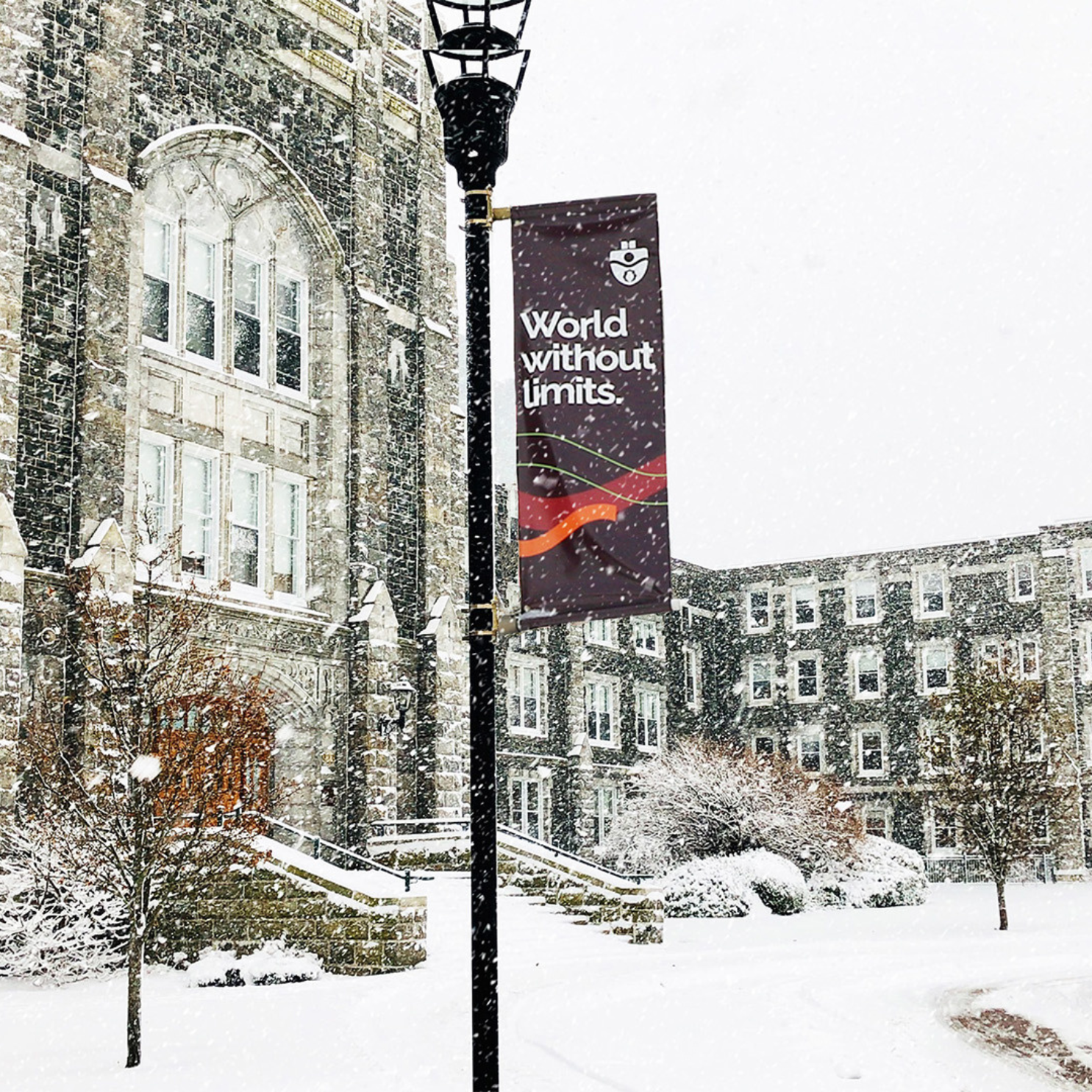A Gift That Keeps Giving: International Exchange Students Reflect on their Time at Saint Mary’s
The Studio for Teaching and Learning
“Completely new ways of learning.” “A more relaxed lifestyle.” “Warm, approachable professors.” “A diverse, welcoming campus.” “New friends for life”. These are just a few of the memories shared by a group of international students who gathered on Monday to celebrate the end of their studies at Saint Mary’s before heading home for the winter holiday. Hosted by Miyuki Arai and Rashae Hart, the farewell event was a chance for the students to gather and reflect on their time spent at SMU and share some of their favourite memories of Halifax.
“For me, it was a dream to study in Canada,” said Laura García, an International Relations major visiting from Universidad La Salle México. “My exchange officer recommended Saint Mary's, so I came here to study political science, economics, and Asian studies for a semester”. The university’s famously welcoming campus stood out immediately, said Laura. “Everyone was so warm and supportive. This place just welcomed me with open arms.”
Of course, international exchange programs can mean major adjustments to how students study and learn. “One thing I really had to get used to was staying on top of readings and assignments throughout the semester, not just for midterms and exams,” said Kelly Tang, visiting from Hong Kong Baptist University. From being encouraged to participate in class and work in groups, “I felt like I was pushed harder than I was used to, but now – looking back – I see that it was worth it,” she added. “Yes, I found I had a lot more reading here,” added Laura. “But you know, that’s so important. The level of analysis and critical thinking [required at SMU] was more than I was expecting, but this is going to help me a lot as I finish my studies back home,” she said.
For physics major Hilkar Soberanes, visiting from Universidad Nacional Autónoma de México, life in Halifax for the past few months was a lot more “calm and relaxed” than Mexico City, which has a population topping 21.8 million in the greater metropolitan area. “Yes, is Halifax much smaller and quieter, but I had everything I needed close by. And you know, I feel like I was in Halifax during an exciting time in its history.” For Hilkar, studying in a highly diverse campus was also a big attraction. “The mix of cultures here made a deep impression on me. All these people with different backgrounds and different perspectives, all pursuing a top-level education together. That’s special.”
With more than 100 university partnerships around the world, Saint Mary’s University is a destination of choice for exchange students looking to study abroad as part of their university degree programs. “This past semester, we had students from 14 nations and territories on campus, despite the challenges presented by the pandemic,” said Miyuki Arai, Director of Global Learning. “When international students come to campus, it’s an unforgettable experience for everyone. Listening to today’s conversations, I was delighted to hear that some of their Canadian friends are now interested in travelling to their country for an exchange program themselves. The gift of transformative experience keeps giving."











